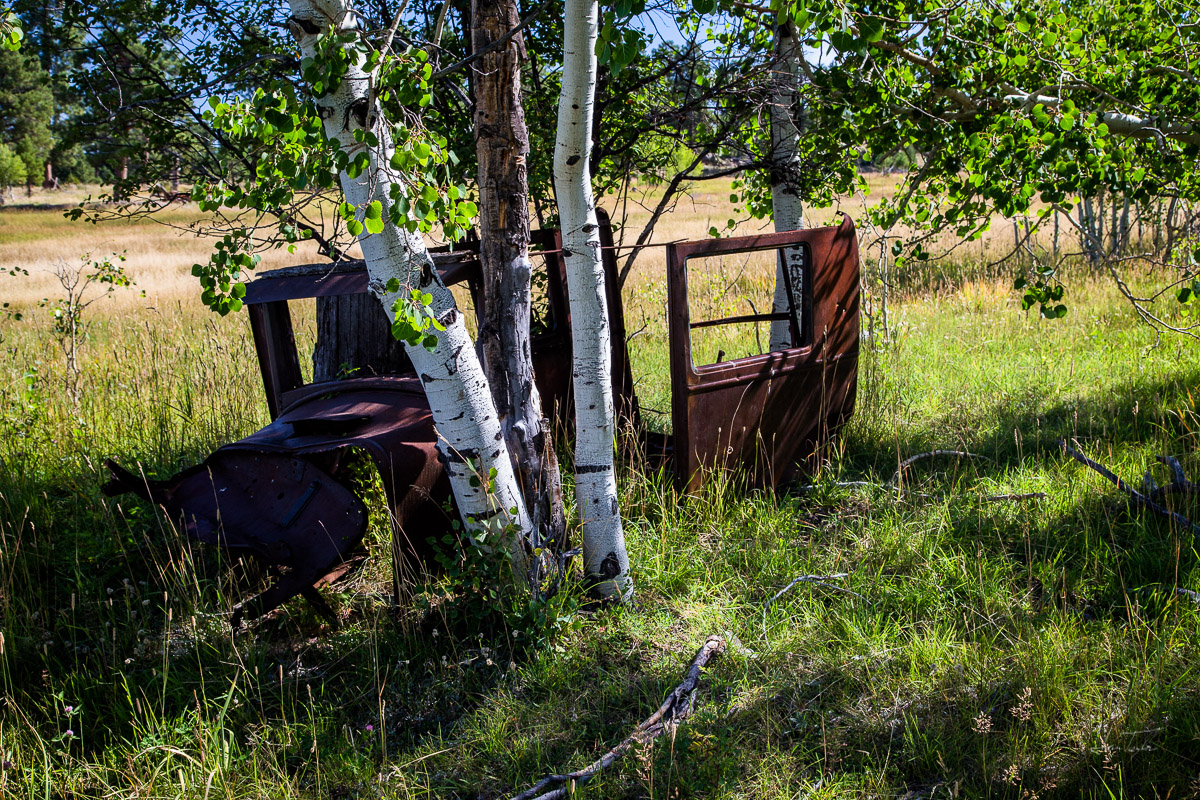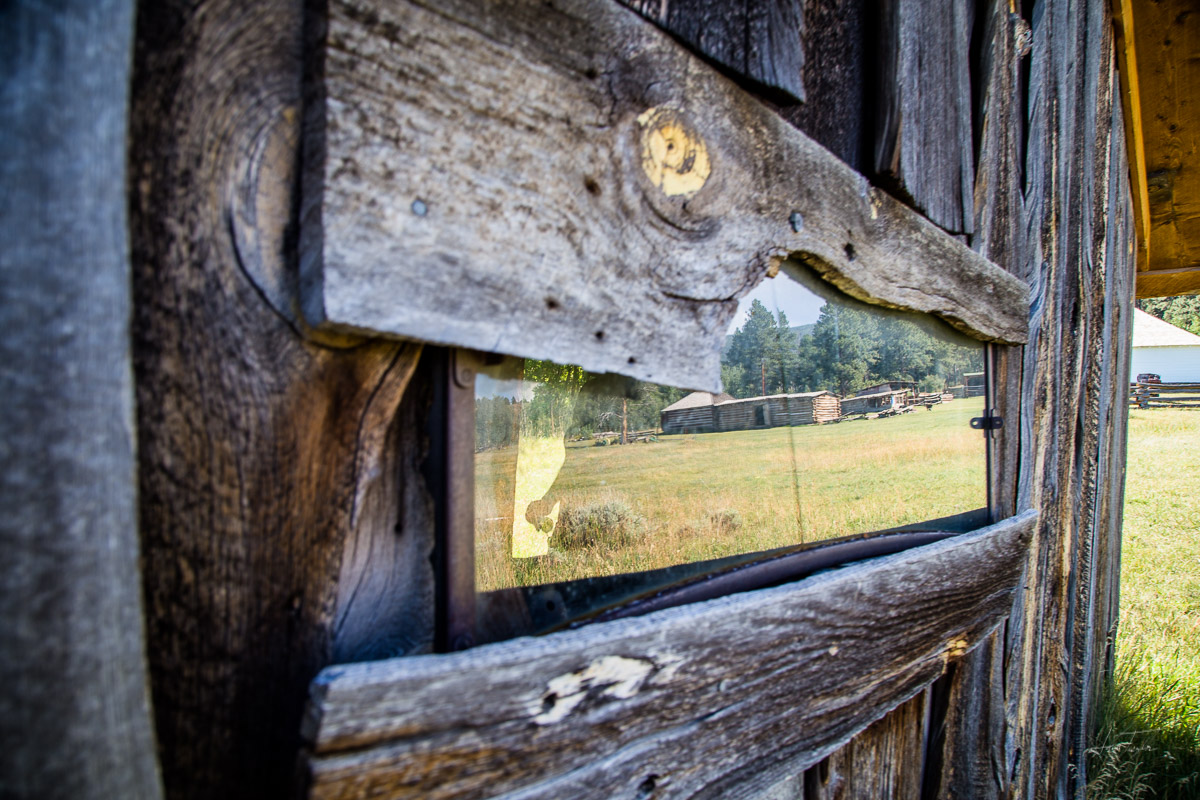Text By: Carmen Bowes
Photos By: Sam Taylor
Oscar and Emma Swett were real-deal, salt-of-the-earth, bread-and-buttered pioneers. Oscar bought a ranch they would make their home with some help from his Momma. Together, he and Emma made the ranch into a self-sustaining hub in the middle of the glorious Flaming Gorge. They supported the ranch with only the help of horses from its inception until 1962 when the family sold the property.
Sam and I happened upon this homestead when we were on the second day of our plan to not have a plan. We pulled into an overlook parking lot and out the back side of it was a rugged, dirt road. Next to the road was a small sign. All it said was, “Swett Ranch.” From the overlook we could see old buildings in a clearing about a mile out.
We are suckers for old, abandoned spots so we took our 4x4 down that narrow road. It was poorly signed but we dead-reckoned it and found our way. As we approached the ranch, we encountered sagging structures, plants growing tall from their insides. The road turns and we are staring straight at a modern port-o-potty. We pull into the neat, gravel parking lot off the dirt.
As we step out of the jeep an older man meets us the gate of a weathered fence. He says in a jolly voice with a big smile on his face, “Welcome to Swett Ranch!” He is wearing a park uniform. Sam and I are trying to keep up when the man tells us about Oscar and Emma and asks us if we would like a tour of the ranch. Of course we do!
He talks quickly and tells us that he and his wife volunteer at the ranch. They give tours when people come by and the rest of the time they work to clean up parts of the property that haven’t been restored or kept up.
The man walks us to where his wife if cleaning out an old wooden sleigh originally used for hauling logs in the snow. He introduces us and when one of us sticks our hand out for a shake she refrains and says all proud, “I can’t, I’ve been cleaning marmot crap out of this sleigh for 2 weeks!” We laugh. She is sweating through her uniform. She is perfect.
Another guest arrives and the man leaves us with the woman. She says, “Let me get my glasses on and I’ll show you around.”
She leads us though the buildings we are closest to. The woman tells us fun stories about the family. One of them went like this. Oscar broke down and bought an automobile at some point and promptly decided the parts were greater than the sum. He used pieces of the thing all over the ranch. The windshield is the window in the black smith shop, the engine is a critical component in a wood splitter.
We walk through aspen trees on the way to another shop on the property. The trees are bright and are lit ethereally by the sun. Tucked on the far edge of the glen, the body of the automobile sits firmly stuck between several growing timbers.
The woman tells us another story about Oscar’s girls playing pranks on each other. A bucket of mud and a plan.
She finally takes us to the little house. It is painted all the colors that used to be poisonous. Uranium orange, radium green, chromium yellow. Quilts are draped over old couches and droopy-springed mattresses hang onto their wooden frames. A few of Emma’s recipes cards lay out on a table. There is an old radio and ancient cans of various products line the shelves.
The bathroom is strange and separate. It was added a long time after the home was initially built and is situated at one end of the wrap-around porch. Its only entrance leads you in from the outside. The woman tells us that Oscar found it unsanitary to have the restroom inside of the home.
The last structure we visit on the ranch is the horse barn. Saddles still hang from the rafters. It is the least-restored space on the property. The roof still has its original cedar shingle roof and hay rests on a packed dirt floor. The woman tells us that Emma always helped put up hay. She says, “There was no man’s job or woman’s job, there was just something that needed done and someone who had the time to do it.”
We walk back through the gate to our jeep and to our pace, our push to see and do more. But the idea of living like Oscar and Emma is stuck in our minds. What a simple and beautiful thing to be so busy with all the parts of self-sustenance.






